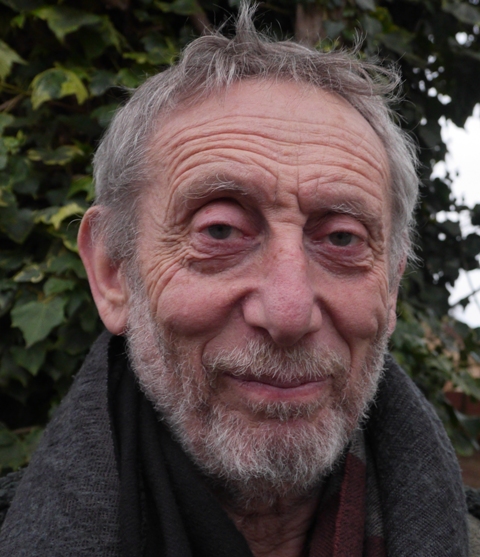
This article is in the Other Articles and Poetry Categories
Poetry: a word from Michael Rosen
I’ve spent pretty well the whole of my life immersed in poetry so I come to this matter in a pretty biased way! That said, I’ve also seen how poetry can light up the lives of people of all ages and backgrounds. Why is this? How does poetry have this magic?
First, to clear the decks: what is poetry? Before the last decades of the 19th century this was a fairly easy question to answer because in most cultures a poem was taken to be something that followed certain fixed rules: rhyme schemes, fixed rhythms and the like. Then ‘modernism’ came along and poets all over the world experimented with new kinds of form: free verse, prose poem, monologues, cut-ups, montages, lists and much more. We have today reached a point where all we can say is that a poem is a poem when enough people agree that it’s a poem! This means that it may include all the old pre-19th century characteristics, or any of the new ones too such as: compression, pithiness, making a point in a proverbial, suggestive, implied, musical or figurative way (that’s metaphor, simile and personification).
So now we get near to how it does its magic. In everyday speech, we may well use any or all of these features at some time or another. The point about poetry is that it scoops them up and uses them in a concentrated way for the moment of the poem. Poems that we find attractive have a way of seeming better than our everyday speech or everyday thoughts because they’ve said something in a way that is both familiar and new to us. As some have said, poetry makes the familiar unfamiliar and the unfamiliar familiar! It ‘estranges’ what we know well by getting us to see things is a new way, and it tells us about strange things so that we can become familiar with them.
This means that poetry has a special place in adults’ relationships with children whether that be in the context of education, home or leisure. What poetry talks about and how it talks means that it takes children into new ways of looking, listening, tasting, touching and smelling; new ways of thinking; and new ways of expressing themselves through language. Poetry also has the power of interpreting the world and finding interesting, exciting and sensual ways of doing it so we hand on the power of interpretation with each poem. And it offers children new landscapes, real or imaginary, inner or outer, scientific or metaphysical.
The world of children’s poetry has in the last few years opened up hugely. When I was at school in the 1950s, it was limited to very few poets – the old (and very great) nonsense poets: Lewis Carroll, Edward Lear and Hilaire Belloc, along with some humorous set pieces by A.A.Milne. Alongside this, we were given a strong set of poems by Walter de la Mare and Robert Louis Stevenson. We were mostly unaware of the burgeoning of voices coming out of the USA – people like Langston Hughes, Carl Sandburg and a bit later, Eve Merriam and Mary Ann Hoberman.
Because of my parents’ own interests, I was lucky to inherit these voices too so when my own first collection came out in 1974 (Mind Your Own Business) full of these voices – a word I take from the great Geoffrey Summerfield collections from the 1960s (Voices and Junior Voices, Penguin Education) and which were themselves full of a huge variety of poetry from all over the world.
The world of CLPE has helped put new poetry on the map. Each year, they publish a short list in the CLiPPA (CLPE Poetry Award) and give an award to a winning collection and anyone wanting to ‘harvest’ the best poetry for children that has come out in the last 30 years need go no further than these short lists and winners. All details on the CLPE website.
There are many poetry websites and online performances of poetry and it’s worth spending time surfing the net to find what you think might suit you or the children you’re working with. Put “poetry” or “poems” or a poet’s name in the search engine and you will get to poems in a matter of seconds. Over at YouTube many of us video ourselves reading our own poems. Again, put a given poet’s name in the search engine and see what comes up. Similarly, follow up poets’ websites which are full of their poems, writing ideas, videos and poetry audio.
Talking of audio, one resource that you may well find particularly useful is the National Poetry Archive, both the adult and children’s section. There are hundreds of audio versions of poems read by the poets themselves. Part of the power of poetry is the way much of it (not all) lives in the ‘world of the ear’. It’s great to connect children to this and to show them how easy and attractive it is to read and perform poems so that they live in the air and in our bodies and minds.
Michael Rosen’s new book, Poems on the Move: Poems about Migration, illustrated by Quentin Blake, is published by Walker Books, 978-1406393705, £9.99 hbk.





